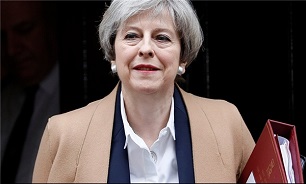UK PM Stresses Firm Support for JCPOA
 "We must stand firm in our support for the ...
deal," May told reporters in the Jordanian capital Amman on Thursday on
the last leg of her Middle East tour that had already taken her to Iraq and
Saudi Arabia.
"We must stand firm in our support for the ...
deal," May told reporters in the Jordanian capital Amman on Thursday on
the last leg of her Middle East tour that had already taken her to Iraq and
Saudi Arabia.
"This deal was the culmination of 13 years of diplomacy and a major step towards ensuring that Iran's nuclear program is not diverted for military purposes," May added in a clear reference to Iran's nuclear deal with the G5+1 countries, which is also known as the Joint Comprehensive Plan of Action (JCPOA).
May met with Jordan's King Abdullah II and was held talks with her Jordanian counterpart Hani al-Mulki later on Thursday.
Iran and the Group 5+1 signed the nuclear deal in July 2015 and started implementing it in January 2016.
Under the deal, Iran undertook to apply certain limits to its nuclear program in exchange for the termination of all nuclear-related sanctions against Tehran.
Eight IAEA reports have so far confirmed Iran’s full commitment to its side of the bargain.
In October, however, US President Donald Trump refused to formally certify that the Islamic Republic was complying with the JCPOA, warning that he might ultimately "terminate” it.
Trump further said he was directing his administration "to work closely with Congress and our allies to address the deal’s many serious flaws.”
The US Congress has until mid-December to decide whether to re-impose the economic sanctions on Tehran that were lifted under the JCPOA.
